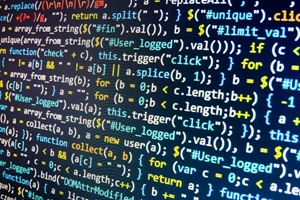- Blockchain
- Utility Transformations
- Utility Transformations
- Policy Regulation
- Cyber Security
US Government Struggles with IoT Vision, but Opportunity Exists to Get It Right

The US government needs to up its Internet of Things (IoT) game, according to a new report that calls efforts so far uncoordinated and lacking a strategic vision. I tend to agree. The report, produced by the Center for Data Innovation, does, however, credit the government for having initiated an array of activities in support of IoT action in the private sector.
Report authors Daniel Castro and Joshua New note the many potential benefits of IoT technology across a variety of economic sectors, such as manufacturing, agriculture, transportation, and healthcare. Noticeably absent, however, is energy (which could be a mere oversight). Nonetheless, the authors characterize current government IoT projects as relatively small scale and one-off.
The report joins a growing number of voices opining about what should be done by government in the wake of the October 2016 Mirai botnet attack. A letter from Senator Mark Warner (D-Va.) to outgoing Federal Communications Commission Chairman Tom Wheeler raised legitimate concerns surrounding wirelessly connected consumer devices. (Warner is a cofounder of the Senate Cybersecurity Caucus.) Wheeler’s response points out the need for postponing next steps until the Trump administration is in place.
Security experts like Bruce Schneier have also told Congress of the imminent need for oversight of the IoT because of the potential for serious dangers if left unchecked. Schneier said the recent botnet attack illustrated the catastrophic risks involved, and he has urged action now while there is time to make smart decisions.
Blockchain to the Rescue?
Others are suggesting Trump and his advisors consider blockchain technology. The idea would be to leverage the consensus mechanism inherent to blockchain that enables all of the computers in a system to agree on which new data is valid and which is a threat. My colleague Stuart Ravens explored the blockchain concept for distributed energy in a recent report, and the technology could be useful for multiple industries.
While there is ample evidence to be concerned about the federal government’s role in regard to the IoT, officials are at least struggling with the issues and are not clueless to its significance at this point. They see the economic value of IoT technologies and the opportunity to get it right with regulations, especially with a new team in place come January. There is reason to believe the IoT will get the attention it deserves in the coming years, or they could blow it. But at least they are on notice to seize the chance to provide a framework for success, from both a security and an economic perspective.